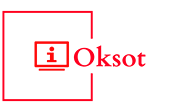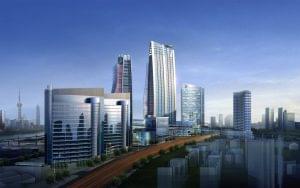The purchase price of the property is sometimes seen by the average person as being the only expense associated with owning a home. But if we were to look at the matter objectively, home ownership involves a number of costs. While creating a budget, it is simple to overlook some expenses. As a result, we have created a checklist of some of the costs that typically arise in these situations and included it in this article. Here are a few of the investments:
1. Buying Cost
This is the expense related to real estate investing that is the most evident. As a result, if we spend $100,000 on a property, we consider our investment to be limited to that sum. We respond with the aforementioned sum when others inquire about how much we paid for something. Yet, as we shall see throughout this piece, the layperson’s assumption that the property’s total cost is $100,000 is frequently untrue.
First, there are fees related to the transaction of the purchase. Brokerage fees, processing fees paid to the bank to handle the mortgage loan, and legal expenses collected by the government to register the property in the name of the new buyer are all included in the transaction costs. These costs are frequently underestimated by first-time purchasers. They can, however, rise swiftly to anywhere between 3% and 5% of the value of the property. Hence, even if the property has a $100000 list price, the buyer will actually pay at least $105,000 for it.
2. Paying Interest
The majority of properties bought nowadays are paid for with borrowed funds. Mortgages are the new standard. The practice of purchasing a home with a cash down payment is essentially unknown today. However there are mortgage payments anytime there is a mortgage, and mortgage payments also include an interest component.
Any mortgage has an amortization plan where the banks first collect all the interest and then subsequently collect the remaining principal. For instance, if your payment is $1000 per month, the first few months will see $900 of that amount going to interest only! In actuality, for the first five years of a mortgage loan’s servicing, the borrowers just service the interest payments! Throughout this time, very little of the main is reduced. So, if these costs are capitalized, or added to the property’s worth, the value of $100,000 grows far above $100,000.
3. Hypothetical Interest
There is notional interest involved in real estate investing in addition to the interest paid, which is a cost borne out of pocket by the buyers. The majority of real estate ventures call for a down payment from the buyer. This down payment is roughly 10% to 15% of the cost of the home. Hence, a person must provide a $15,000 down payment for a $100000. Making this payment now has a cost in opportunity. This money would have been earning interest in a bank or on another investment if it hadn’t been utilized for the down payment. It does not, however, accrue interest after the down payment has been made!
Hence, in addition to the $100,000 that the buyer initially believed to be their whole investment in the home, the amount of notional interest lost should also be added to the property valuation.
4. Insurance
Most mortgage lenders want property insurance from the buyer. This is due to the possibility that the property could be destroyed in the event of a natural disaster, such as an earthquake or a hurricane. The borrower will consequently just stop making payments on the property. Thus, the lenders rely on insurance to safeguard their interests.
Many homeowners choose insurance for their home’s contents in addition to the insurance that protects the home’s worth. This is due to the fact that they invest a sizable sum of money in interior design and need to ensure that their investment is safeguarded in the event of an unanticipated circumstance. This also raises the price of owning a home.
5. Real estate taxes
We consent to a perpetual stream of payments to the government when we purchase real estate. The majority of governments in the world impose what are known as property taxes. Once more, these taxes considerably increase the price of property ownership. One must also be aware that these expenses frequently change in value over time. As a result, these prices frequently increase at the same rate as inflation. As a result, when creating a budget for buying property, one must account for the costs associated.
6. Maintenance
Today, amenities are standard in properties all around the world. Gated neighborhoods with jogging trails and pools are typical. The goal is to give the people access to a lifestyle rather than just a house. Unfortunately, there is a lot of upkeep required for these services. Gated communities need a large staff and a variety of tools to maintain security and cleanliness. As a result, the homebuyers are also responsible for paying these fees on a regular basis. This also drives up the price of purchasing a property. One needs to be exceedingly cautious of these expenses because they can snare an unwary consumer.
7. Furnishings and Appliances
Getting the utilities changed over to one’s name and outfitting the residence come at a minimal expense. These expenses also go toward the overall price of property ownership.
The cost of home ownership is thus a complicated web of expenses. Understanding and planning for these hidden costs requires extreme caution because leaving them out of your budget could have a huge negative impact in the future.
Real estate investing from a behavioral perspective
Investing decisions are intended to be prudent financial ones. We learn models to evaluate investments and use as the foundation for our decisions in finance classes. People make investing decisions emotionally in real life, though. For real estate investments, this is more accurate. The majority of people have strong emotional ties to their houses or the concept of homes. As a result, they base many of their decisions on factors that are not strictly financial or mathematical. We shall highlight a few of the behavioral factors that influence real estate decision-making in this article.
- Real Estate Purchasing as a Rite of Passage
- Purchasing a Home Just Because Everyone Else Is
- Purchasing a Home Only Because Someone Made Millions Before
- Purchasing Real Estate for “Tax Benefits”
- Purchasing a Home Due to the Scarcity of Land!




